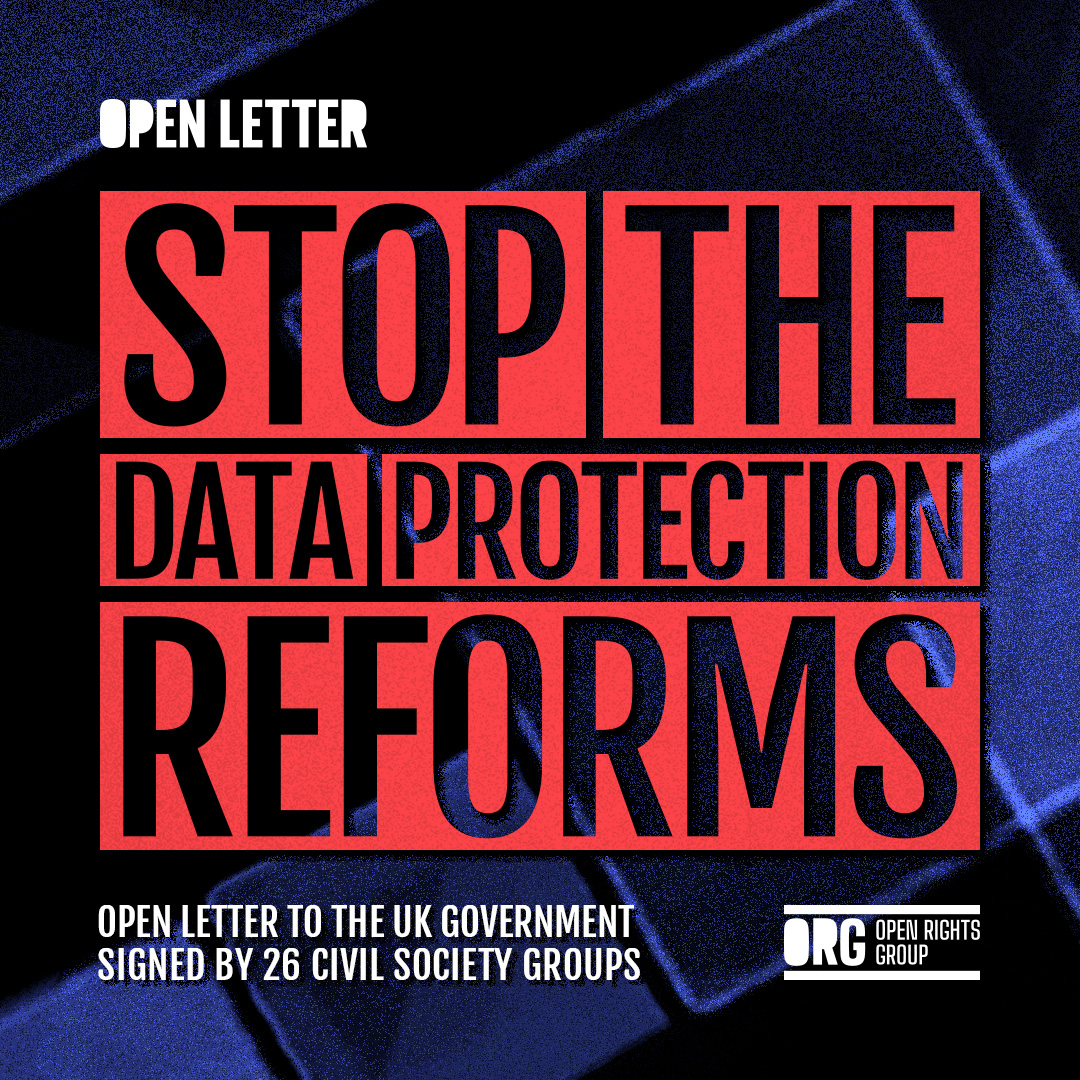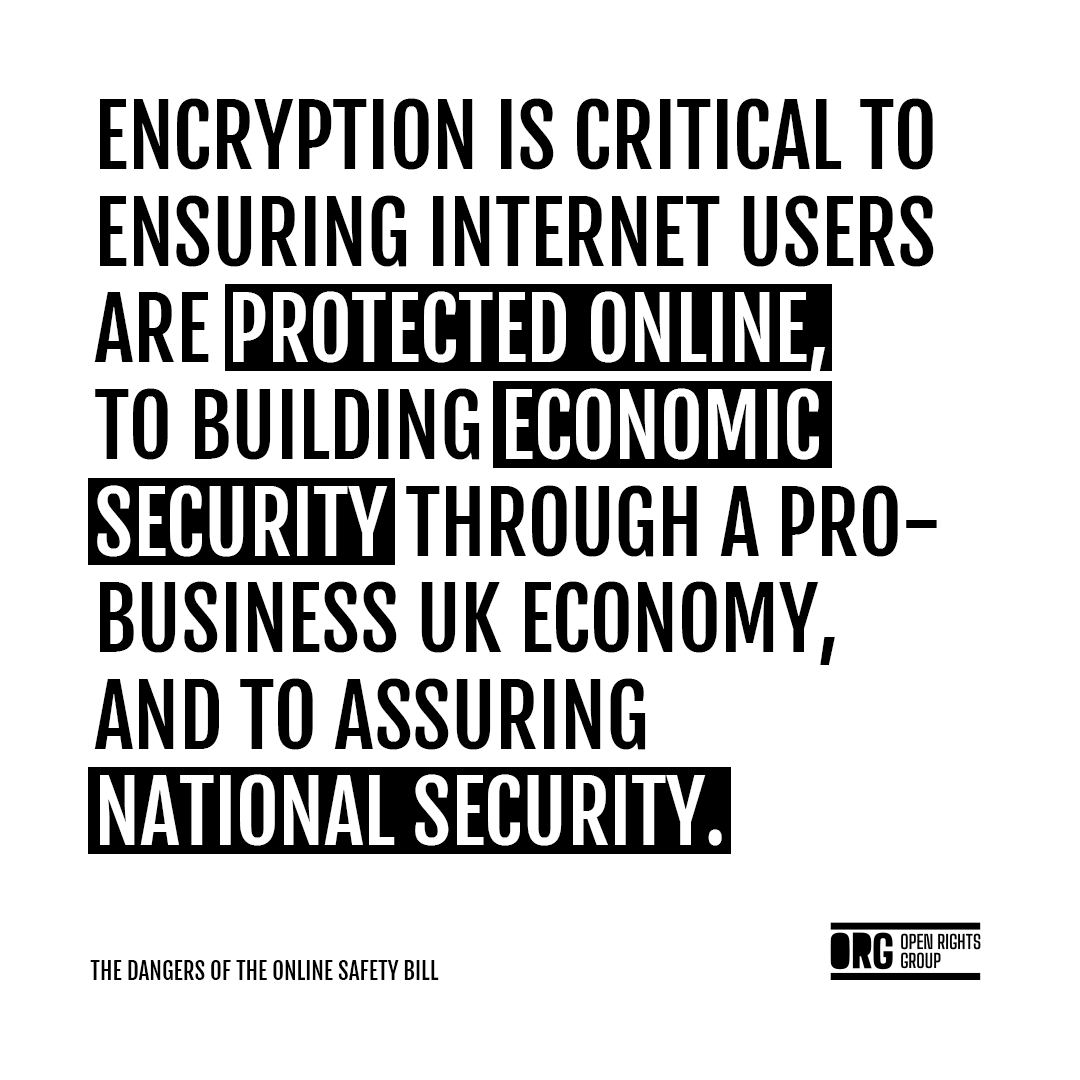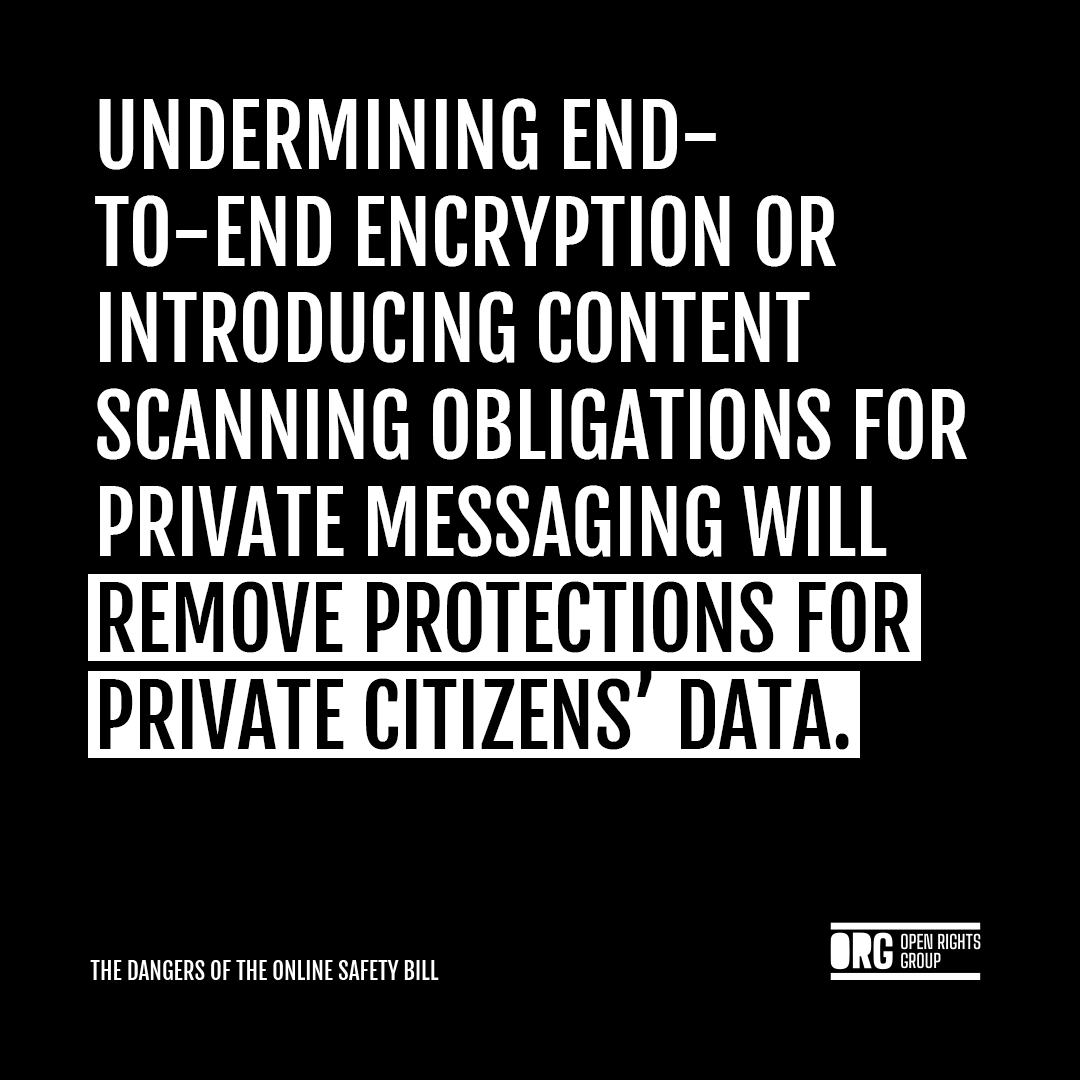Yesterday we sent an urgent open letter to @michelledonelan with 25 other civil society groups. We called on the government to scrap the Data Protection and Digital Information Bill and the attack on our data protection rights. Here's why.
1/7 openrightsgroup.org/blog/the-data-…
1/7 openrightsgroup.org/blog/the-data-…

@michelledonelan The #DPDIBill lowers the threshold for organisations to refuse a Subject Access Request and removes individuals’ right to not to be subjected to solely automated decision making. 2/7 

@michelledonelan The independence of the @ICOnews will be reduced by the #DPDIBill. As the ICO plays a key part in the oversight of the government’s use of data, this is extremely problematic. 3/7 

@michelledonelan @ICOnews The #DPDIBill means that the Secretary of State could make changes to increase data the ways that data is used and reused without meaningful parliamentary oversight. 4/7 

@michelledonelan @ICOnews The #DPDIBill gives the Secretary of State the discretion to approve international data transfers to countries with insufficient data protection standards. This will make the UK a hub for data laundering. 5/7 

@michelledonelan @ICOnews Changes to Data Protection Impact Assessments remove the requirement to consult with data subjects who are affected by high risk processing. 6/7 

@michelledonelan @ICOnews We need a data protection law that builds on the protections created by the #GDPR. People’s rights, not government control or corporate profits, should be the basis of any new legislation. #DPDIBill
✊ Join our campaign to stop the attack on our rights. action.openrightsgroup.org/stop-data-disc…
✊ Join our campaign to stop the attack on our rights. action.openrightsgroup.org/stop-data-disc…

• • •
Missing some Tweet in this thread? You can try to
force a refresh






